Suche
Beiträge, die mit DataProtection getaggt sind
Meta harvests personal data to track your behaviour, making assumptions about who you are and what you believe. This is used to sell targeted adverts 🏧
By settling Tanya O'Carroll's case, Meta admits that you have the right to opt-out.
It's time to #StopStalkerAds
https://techcrunch.com/2025/03/21/meta-settles-u-k-right-to-object-to-ad-tracking-lawsuit-by-agreeing-not-to-track-plaintiff/
Use our tool to opt-out ➡️ https://action.openrightsgroup.org/meta-opt-out
#meta #dataprotection #surveillanceadvertising #surveillancecapitalism #adtech #GDPR #privacy #ukpolitics #ukpol
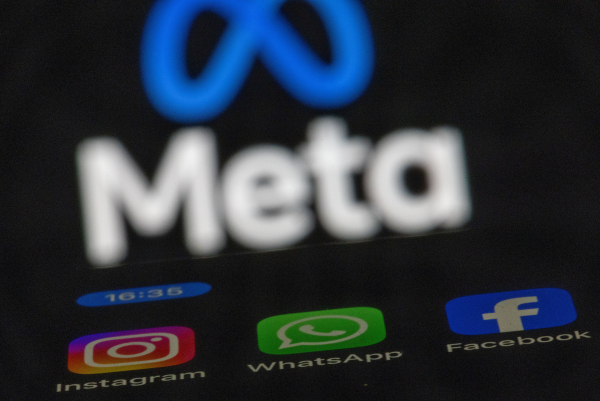
Meta settles UK 'right to object to ad-tracking' lawsuit by agreeing not to track plaintiff | TechCrunch
A human rights campaigner, Tanya O'Carroll, has succeeded in forcing social media giant Meta not to use her data for targeted advertising. The agreementNatasha Lomas (TechCrunch)
Last week saw a big win for data rights! Meta settled Tanya O'Carroll's legal case against them. They agreed to stop using her data for targeted advertising.
Now it's your turn 🫵
Use our tool to #StopStalkerAds (UK residents) ⬇️
https://action.openrightsgroup.org/meta-opt-out
#meta #dataprotection #surveillanceadvertising #adtech #GDPR #privacy #surveillancecapitalism #ukpolitics #ukpol #Facebook

Meta opt-out
In March 2025, there was a huge victory for your data rights! Meta settled a four year court case with human rights campaigner Tanya O’Carroll.Open Rights Group
The most recent data breach report, published Friday by Bleeping Computer, said that Oracle Health—a health care software-as-a-service business the company acquired in 2022—had learned in February that a threat actor accessed one of its servers and made off with patient data from US hospitals. Bleeping Computer said Oracle Health customers have received breach notifications that were printed on plain paper rather than official Oracle letterhead and were signed by Seema Verma, the executive vice president & GM of Oracle Health.
The other report of a data breach occurred eight days ago, when an anonymous person using the handle rose87168 published a sampling of what they said were 6 million records of authentication data belonging to Oracle Cloud customers. Rose87168 told Bleeping Computer that they had acquired the data a little more than a month earlier after exploiting a vulnerability that gave access to an Oracle Cloud server."
https://arstechnica.com/security/2025/03/oracle-is-mum-on-reports-it-has-experienced-2-separate-data-breaches/
#CyberSecurity #Oracle #DataBreaches #DataProtection

Oracle has reportedly suffered 2 separate breaches exposing thousands of customers‘ PII
Alleged breaches affect Oracle Cloud and Oracle Health.Dan Goodin (Ars Technica)
Meta should give us options for opting-out of stalker ads. Until they do, you can use our tool to make this request.
Take control of your privacy ✊
Act Now (UK Residents) ➡️ https://action.openrightsgroup.org/meta-opt-out
#StopStalkerAds 🚫
#dataprotection #privacy #meta #privacy #gdpr #adtech #facebook #surveillancecapitalism
Meta opt-out
In March 2025, there was a huge victory for your data rights! Meta settled a four year court case with human rights campaigner Tanya O’Carroll.Open Rights Group
“The super-conservative perspective is to assume they are completely unhinged and that even the most benign reasons for travel are going to subject non-citizens to these device searches,” said Sophia Cope, a senior staff attorney at the Electronic Frontier Foundation (EFF), a non-profit digital rights group.
If you’re a US citizen, you must be admitted into the country. That said, some jurisdictions allow CBP to work with the FBI or local police to advance domestic investigations, so there are still some risks of your devices being searched for domestic reasons.
There are steps you can take to make it harder for CBP officers to access your device and the data on it. So what should you do to protect the data on your phone from being searched? The main thing is to prepare ahead of heading to the airport. Here is what you should be thinking about:"
https://www.theguardian.com/technology/2025/mar/26/phone-search-privacy-us-border-immigration
#USA #Borders #Privacy #Surveillance #DataProtection #CBP
When the company first announced it was considering a sale, we highlighted many of the potential issues, including selling that data to companies with poor security practices or direct links to law enforcement. With this bankruptcy, the concerns we expressed last year remain the same. It is unclear what will happen with your genetic data if 23andMe finds a buyer, and that uncertainty is a clear indication that you should consider deleting your data. California attorney general Rob Bonta agrees."
https://www.eff.org/deeplinks/2025/03/how-delete-your-23andme-data
#23AndMe #DNA #Privacy #DataProtection #GeneticData
(...)
The study focused on the behaviors of the three biggest voice assistant platforms: Amazon’s Alexa, Apple’s Siri and Google Assistant. What researchers found was that how concerned you should be about your smart assistant profiling you varies greatly depending on which device you use.
But in order to figure this out, they had to essentially trick voice assistants into profiling them.
They downloaded publicly available information that Google compiles on every user based on their searches, like gender, age range, relationship status and income bracket. Using those labels, they were able to design questions that could easily convince the platforms that they were, for example, married, had children or were a homeowner not a renter.
The researchers then recorded themselves asking these questions and replayed the audio to voice assistants over and over again. Over the course of 20 months, they conducted 1,171 experiments involving nearly 25,000 queries.
(...)
What they ended up finding was that Alexa exhibits the most straightforward kind of profiling behavior: It’s all based on your interest in products.
(...)
However, with Siri and Google Assistant, things are more complicated.
After reaching out to Apple to get their data, the company insisted “they had no data on us,” Choffnes says, “which means we couldn’t even test anything or prove any hypothesis about whether there was any profiling happening.”
(...)
Meanwhile, Google Assistant was the strangest of the bunch. The researchers found that it was clearly profiling its users but often incorrectly."
https://news.northeastern.edu/2025/03/17/voice-assistant-profiling-research/
#VoiceAssistants #IoT #SmartObjects #Amazon #Alexa #Google #Apple #Surveillance #Privacy #DataProtection

Your voice assistant is profiling you, just not in the way you expect, new research finds
The three biggest players in voice assistants –– Google, Apple and Amazon –– have radically different approaches to profiling users.Cody Mello-Klein (Northeastern Global News)
Collaboration between Big Tech and the Trump administration began before Donald Trump’s swearing-in on January 20. Amazon, Meta, Google, Microsoft, and Uber each gave $1 million to Trump’s inauguration. Separately, in personal donations, so did Meta CEO Mark Zuckerberg and Apple’s Tim Cook.
Americans concerned about the Trump administration and Silicon Valley’s embrace of it, may consider becoming a “digital expat”—moving your digital life off of US-based systems. Meanwhile, Europeans are starting to see US data services as “no longer safe” for businesses, governments, and societies.
Here’s a brief rundown of the privacy, security, and civil liberties issues related to the use of US-based digital services that suddenly feel more urgent—and what to do about it."
https://www.wired.com/story/trump-era-digital-expat/
#USA #Trump #BigTech #Privacy #CyberSecurity #DataProtection
Ultimately, the entire deal fell apart after Clearview and ICI clashed about the utility of the data with each company filing breach of contract claims. The dispute ultimately went into arbitration where it is common for disputes to be settled privately. The arbiter ultimately sided with Clearview AI in 2024 and ordered ICI to return the contract money. To date, ICI has not paid Clearview, with the company now seeking a court order to enforce the arbiter’s ruling."
https://www.404media.co/facial-recognition-company-clearview-attempted-to-buy-social-security-numbers-and-mugshots-for-its-database/
#Clearview #Surveillance #Privacy #DataProtection #SocialSecurity #FacialRecognition #Biometrics

Facial Recognition Company Clearview Attempted to Buy Social Security Numbers and Mugshots for its Database
Clearview AI spent nearly a million dollars in a bid to purchase “690 million arrest records and 390 million arrest photos” from all 50 states, court records reveal.Freddy Martinez (404 Media)
Two other apps, called Campfire and Wayfarer, are also part of the deal. Campfire is a tool that lets people meet up in the real world to play Pokémon Go (or other Niantic games) together, and Wayfarer is an app that specifically leverages the players of Niantic games to map real-world locations for Pokémon Go. Niantic will keep Ingress, its first augmented reality game, and another game called Peridot.
Niantic said that a knock-on effect of this massive deal is that it will be spinning off its nascent AI mapping business, which was using Pokémon Go data to create a “large geospatial model,” into a separate company called Niantic Spatial."
https://www.404media.co/saudi-arabia-buys-pokemon-go-and-probably-all-of-your-location-data/
#PokemonGo #SaudiArabia #Niantic #SavvyGames #LocationData #DataProtection

Saudi Arabia Buys Pokémon Go, and Probably All of Your Location Data
A company owned by the Saudi Arabian Public Investment Fund just bought the most popular AR video game of all time.Jason Koebler (404 Media)
Apple had previously allowed end-to-end encryption of data on UK devices through its Advanced Data Protection (ADP) tool, but that ended Friday, a spokesperson said in a lengthy statement.
"Apple can no longer offer Advanced Data Protection (ADP) in the United Kingdom to new users and current UK users will eventually need to disable this security feature," Apple said."
https://arstechnica.com/tech-policy/2025/02/apple-pulls-data-protection-tool-instead-of-caving-to-uk-demand-for-a-backdoor/
#UK #CyberSecurity #Apple #Encryption #Backdoors #DataProtection #Surveillance
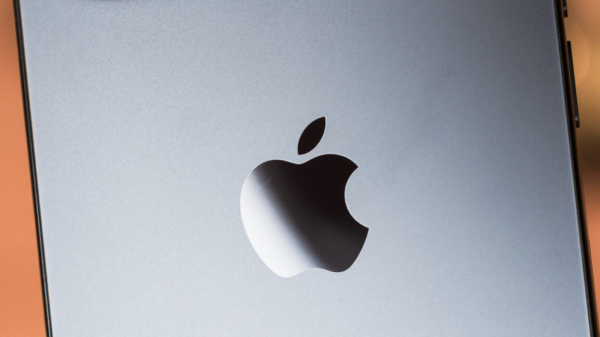
Apple pulls end-to-end encryption in UK, spurning backdoors for gov’t spying
Apple abruptly yanks privacy tool in UK, taking bold stance against snooping law.Ashley Belanger (Ars Technica)
As the Trump administration concludes its first 30 days in office, three worrying trends emerge at the intersection of technology and democratic governance. New America’s Open Technology Institute has long championed democratically accountable tech policymaking, and over the past month, we have tracked federal actions that run counter to this objective:
- The weakening of oversight of U.S. government surveillance
- The elimination of institutions that protect American consumers and their data
- Systematic efforts to access some of America’s most vital data systems without regard for individual privacy or data security"
https://www.newamerica.org/oti/blog/trumps-tech-governance-making-sense-of-the-administrations-first-30-days/
#USA #Trump #Surveillance #ConsumerRights #Privacy #DataProtection #CyberSecurity

Trump’s Tech Governance: Making Sense of the Administration’s First 30 Days
As the Trump administration concludes the first 30 days, three worrying trends emerge at the intersection of tech and democracy.New America
Some people think the problem with mass surveillance is a kind of machine-driven, automated mind-control ray. They believe the self-aggrandizing claims of tech bros to have finally perfected the elusive mind-control ray, using big data and machine learning.
But you don't need to accept these outlandish claims – which come from Big Tech's sales literature, wherein they boast to potential advertisers that surveillance ads are devastatingly effective – to understand how and why this is harmful. If you're struggling with opioid addiction and I target an ad to you for a fake cure or rehab center, I haven't brainwashed you – I've just tricked you. We don't have to believe in mind-control to believe that targeted lies can cause unlimited harms.
And those harms are indeed grave."
https://pluralistic.net/2025/02/20/privacy-first-second-third/#malvertising
#USA #AdTech #DataBrokers #DataBrokerage #Privacy #BigTech #MassSurveillance #DataProtection
Changes which come in on Sunday permit so-called "fingerprinting", which allows online advertisers to collect more data about users including their IP addresses and information about their devices.
Google says this data is already widely used by other companies, and it continues to encourage responsible data use.
However the company had previously come out strongly against this kind of data collection, saying in a 2019 blog that fingerprinting "subverts user choice and is wrong."
But in a post announcing the new rule changes, Google said the way people used the internet - such as devices like smart TVs and consoles - meant it was harder to target ads to users using conventional data collection, which users control with cookie consent."
https://www.bbc.com/news/articles/cm21g0052dno
#Google #AdTech #Privacy #Fingerprinting #DataProtection

Fingerprinting: Critics say Google rules put profits over privacy
Google is allowing advertisers to collect more personal information, which is harder for users to control.Imran Rahman-Jones (BBC News)
#Privacy isn’t about hiding - it’s about control.
Your medical history, political views, private conversations - do you want corporations or governments deciding how to use them?
Mass surveillance isn’t about safety. It’s about power. Take yours back.
#KeepDataPrivate #dataprivacy #SecureByDesign #dataprotection #privacyMatters #StopSurveillance

X challenges German court decision that forces it to share election data
Elon Musk’s X has challenged a German court decision that instructed the platform to share data with researchers, the court confirmed to POLITICO. In an urgent injunction, the Berlin Regional…Eliza Gkritsi (POLITICO)
The Department of Government Efficiency that Musk heads is not a government agency established by Congress but an opaque body created by executive order. Senate minority leader Chuck Schumer has argued it has no authority to make spending decisions or shut down programmes — let alone entire agencies.
In their quest to find savings and root out “woke” policies, Musk’s team of 20-something coders have nonetheless managed to infiltrate agencies including the US Treasury and the state and health departments; the $40bn USAID agency has in effect closed down. Tens of thousands of civil servants have been fired or suspended. Doge operatives have accessed troves of data, from intelligence records to employees’ bank details and health records, raising risks for privacy and national security. Handing such power to a corporate boss with an interest in shaping policies and regulation creates clear conflicts."
https://www.ft.com/content/f7665ee1-dcda-4c35-9209-735094054482
#USA #DOGE #Musk #Bureaucracy #Privacy #DataProtection
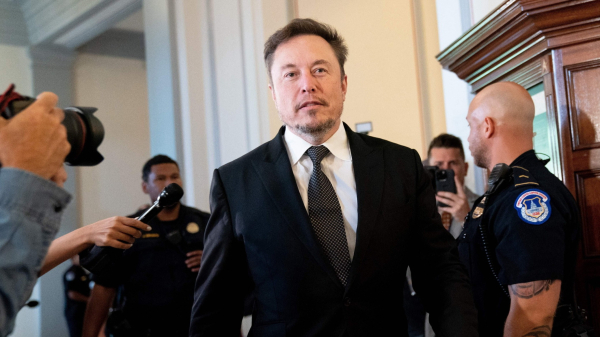
Elon Musk’s assault on the US federal bureaucracy
Supposed efficiency drive is providing cover for a power grab by the executive branchThe editorial board (Financial Times)
🚷 Big Tech shouldn't track your every move across the Internet to profile you as a product.
✅ Consent is a must – we should be able to opt-out of all targeted advertising on these platforms.
#adtech #Meta #dataprotection #GDPR #advertising #ukpolitics #ukpol
https://www.theguardian.com/society/2025/feb/08/gambling-firms-secretly-shared-users-data-with-facebook-without-permission
Two of those sources say that Elez’s privileges include the ability not just to read but to write code on two of the most sensitive systems in the US government: the Payment Automation Manager and Secure Payment System at the Bureau of the Fiscal Service (BFS). Housed on a secure mainframe, these systems control, on a granular level, government payments that in their totality amount to more than a fifth of the US economy.
Despite reporting that suggests that Musk’s so-called Department of Government Efficiency (DOGE) task force has access to these Treasury systems on a “read-only” level, sources say Elez, who has visited a Kansas City office housing BFS systems, has many administrator-level privileges. Typically, those admin privileges could give someone the power to log in to servers through secure shell access, navigate the entire file system, change user permissions, and delete or modify critical files. That could allow someone to bypass the security measures of, and potentially cause irreversible changes to, the very systems they have access to."
https://www.wired.com/story/elon-musk-associate-bfs-federal-payment-system/
#USA #CyberSecurity #Privacy #DataProtection #BFS #Musk

A 25-Year-Old With Elon Musk Ties Has Direct Access to the Federal Payment System
The Bureau of the Fiscal Service is a sleepy part of the Treasury Department. It’s also where, sources say, a 25-year-old engineer tied to Elon Musk has admin privileges over the code that controls Social Security payments, tax returns, and more.Vittoria Elliott (WIRED)
"Thomas Shedd, a Musk-associate and now head of the General Services Administration’s Technology Transformation Services (TTS), told government tech workers in a meeting this week that the administration plans to widely deploy AI throughout the government. Shedd also said the administration would need help altering login.gov, a government login system, to further integrate with sensitive systems like social security “to further identify individuals and detect and prevent fraud,” which employees identified on the meeting as “an illegal task.”
Shedd, who is a former Tesla engineer, said the government should “try to get consent,” regarding login.gov changes but that “we should still push forward and see what we can do.”
WIRED and the New York Times previously reported on aspects of the meeting. 404 Media has now obtained audio of the full meeting and quotes it extensively below. Shedd told TTS workers that the administration would need help making radical changes to various government systems: “Things are going to get intense,” he said."
https://www.404media.co/things-are-going-to-get-intense-how-a-musk-ally-plans-to-push-ai-on-the-government/
#USA #Musk #Surveillance #DOGE #AI #Privacy #DataProtection #TTS

‘Things Are Going to Get Intense:’ How a Musk Ally Plans to Push AI on the Government
404 Media has obtained audio of a meeting held by Thomas Shedd, a Musk-associate who is now heading a team of government coders. In the call one employee pushed back and said one of the planned moves is an “illegal task.”Jason Koebler (404 Media)
There are data leaks, and then there’s this. A supermassive Mother of all Breaches (MOAB for short) includes records from thousands of meticulously compiled and reindexed leaks, breaches, and privately sold databases. The full and searchable list is included at the end of this article.
Bob Dyachenko, cybersecurity researcher and owner at SecurityDiscovery.com, together with the Cybernews team, has discovered billions upon billions of exposed records on an open instance.
Even though at first the owner of the database was unknown, Leak-Lookup, a data breach search engine, said it was the holder of the leaked dataset. The platform posted a message on X, saying the problem behind the leak was a “firewall misconfiguration,” which was fixed."
https://cybernews.com/security/billions-passwords-credentials-leaked-mother-of-all-breaches/
#CyberSecurity #DataBreaches #Privacy #DataProtection
UK Political Parties collect and use data to profile you as a voter, tailoring their message accordingly.
Our new report finds that canvassing apps used by the Parties create risks to voters’ privacy.
Find out more ⬇️
#dataprotection #GDPR #privacy #data #democracy #ukpolitics #ukpol
https://www.openrightsgroup.org/press-releases/new-report-voter-data-privacy-concerns-over-apps-used-by-political-parties/
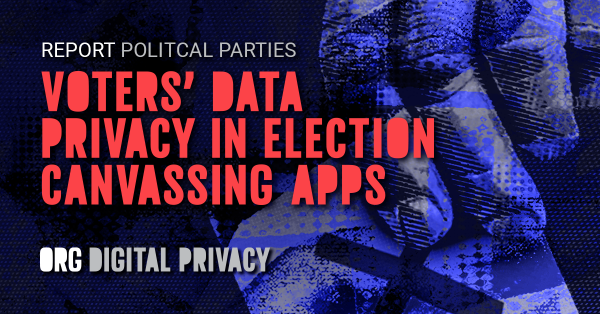
New report: Voter data privacy concerns over apps used by political parties
Moral Hazard A new report, Moral Hazard: Voter Data Privacy and Politics in Election Canvassing Apps, raises concerns about the privacy and security of canvassing apps used by political parties.Open Rights Group
Use our tool to opt-out of them processing your data, meaning you'll likely receive fewer communications from them.
In a democracy, your voice should be heard.
Take action today ➡️ https://action.openrightsgroup.org/opt-out-political-parties-processing-your-data-0
(ORG doesn't retain any uploaded documents)
#dataprotection #GDPR #privacy #democracy #data #politicalparties #ukpolitics
Opt-out of political parties processing your data
Political parties are hungry for sensitive personal data about your views, opinions, voting preferences and ideological outlook. Parties will actively seek to obtain this information from surveys and canvassing.Open Rights Group
Last year, a New York Times investigation highlighted how G.M. was sharing information with insurance companies without clear knowledge from the driver. This resulted in people’s insurance premiums increasing, sometimes without them realizing why that was happening. This data sharing problem was common amongst many carmakers, not just G.M., but figuring out what your car was sharing was often a Sisyphean task, somehow managing to be more complicated than trying to learn similar details about apps or websites."
https://www.eff.org/deeplinks/2025/01/ftcs-ban-gm-and-onstar-selling-driver-behavior-good-first-step
#USA #FTC #GM #OnStar #Privacy #LocationData #GeoLocation #DataProtection
The staff perspective is based on an examination of documents obtained by FTC staff’s 6(b) orders sent to several companies in July aiming to better understand the shadowy market that third-party intermediaries use to set individualized prices for products and services based on consumers’ characteristics and behaviors, like location, demographics, browsing patterns and shopping history.
Staff found that consumer behaviors ranging from mouse movements on a webpage to the type of products that consumers leave unpurchased in an online shopping cart can be tracked and used by retailers to tailor consumer pricing."
https://www.ftc.gov/news-events/news/press-releases/2025/01/ftc-surveillance-pricing-study-indicates-wide-range-personal-data-used-set-individualized-consumer
#USA #FTC #SurveillancePricing #Surveillance #DataProtection
In 2025, eight new state privacy laws will take effect, making a total of 25 around the country. A number of other states—like Vermont and Massachusetts—are considering passing their own privacy bills next year, and such laws could, in theory, force national legislation, says Woodrow Hartzog, a technology law scholar at Boston University School of Law. “Right now, the statutes are all similar enough that the compliance cost is perhaps expensive but manageable,” he explains. But if one state passed a law that was different enough from the others, a national law could be the only way to resolve the conflict. Additionally, four states—California, Texas, Vermont, and Oregon—already have specific laws regulating data brokers, including the requirement that they register with the state.
Along with new laws, says Justin Brookman, the director of technology policy at Consumer Reports, comes the possibility that “we can put some more teeth on these laws.”
Brookman points to Texas, where some of the most aggressive enforcement action at the state level has taken place under its Republican attorney general, Ken Paxton. Even before the state’s new consumer privacy bill went into effect in July, Paxton announced the creation of a special task force focused on enforcing the state’s privacy laws. He has since targeted a number of data brokers—including National Public Data, which exposed millions of sensitive customer records in a data breach in August, as well as companies that sell to them, like Sirius XM."
https://www.technologyreview.com/2025/01/07/1109301/privacy-protection-data-brokers-personal-information/
#USA #Privacy #DataProtection #DataBrokers #DataBrokerage

What’s next for our privacy?
The US still has no federal privacy law. But recent enforcement actions against data brokers may offer some new protections for Americans’ personal information.Eileen Guo (MIT Technology Review)
The news is a crystalizing moment for the location data industry. For years, companies have harvested location information from smartphones, either through ordinary apps or the advertising ecosystem, and then built products based on that data or sold it to others. In many cases, those customers include the U.S. government, with arms of the military, DHS, the IRS, and FBI using it for various purposes. But collecting that data presents an attractive target to hackers.
“A location data broker like Gravy Analytics getting hacked is the nightmare scenario all privacy advocates have feared and warned about. The potential harms for individuals is haunting, and if all the bulk location data of Americans ends up being sold on underground markets, this will create countless deanonymization risks and tracking concerns for high risk individuals and organizations,” Zach Edwards, senior threat analyst at cybersecurity firm Silent Push, and who has followed the location data industry closely, told 404 Media. “This may be the first major breach of a bulk location data provider, but it won't be the last.”"
https://www.404media.co/hackers-claim-massive-breach-of-location-data-giant-threaten-to-leak-data/
#CyberSecurity #USA #Venntel #DataBreaches #LocationData #Surveillance #Privacy #DataProtection

Hackers Claim Massive Breach of Location Data Giant, Threaten to Leak Data
Gravy Analytics has been one of the most important companies in the location data industry for years, collating smartphone location data from around the world selling some to the U.S. government. Hackers say they stole a mountain of data.Joseph Cox (404 Media)
What do these privacy violations have in common? They share a source of data that’s shockingly pervasive and unregulated: the technology powering nearly every ad you see online.
Each time you see a targeted ad, your personal information is exposed to thousands of advertisers and data brokers through a process called “real-time bidding” (RTB). This process does more than deliver ads—it fuels government surveillance, poses national security risks, and gives data brokers easy access to your online activity. RTB might be the most privacy-invasive surveillance system that you’ve never heard of."
https://www.eff.org/deeplinks/2025/01/online-behavioral-ads-fuel-surveillance-industry-heres-how
#Privacy #Surveillance #CyberSecurity #AdTargeting #DataProtection #DataBrokers #DataBrokerage #RTB
Before you dive in, know that there are many ways to shore up your safety and privacy. It’s OK to take them on slowly but surely, one at a time. If you run into any challenges, remember: the Digital Security Training team at Freedom of the Press Foundation (FPF) is here to help. Reach out here."
https://freedom.press/digisec/blog/journalists-digital-security-checklist/
#USA #PressFreedom #Journalism #CyberSecurity #Privacy #DataProtection

The 2025 journalist’s digital security checklist
Our digital security training team's checklist to help journalists secure their digital life.Freedom of the Press
The development was first reported by Reuters.
The settlement applies to U.S.-based individuals current or former owners or purchasers of a Siri-enabled device who had their confidential voice communications with the assistant "obtained by Apple and/or were shared with third-parties as a result of an unintended Siri activation" between September 17, 2014, and December 31, 2024.
Eligible individuals can submit claims for up to five Siri devices – iPhone, iPad, Apple Watch, MacBook, iMac, HomePod, iPod touch, or Apple TV – on which they claim to have experienced an accidental Siri activation during a conversation intended to be confidential or private. Class members who submit valid claims can receive $20 per device."
https://thehackernews.com/2025/01/apple-to-pay-siri-users-20-per-device.html
#Apple #Siri #Privacy #USA #DataProtection
Our best hope for protection is that legislators in Massachusetts and other states who are concerned about these risks take steps now to upgrade their privacy laws."
https://teachprivacy.com/privacy-in-authoritarian-times/
#Privacy #CyberSecurity #Surveillance #Authoritarianism #DataProtection
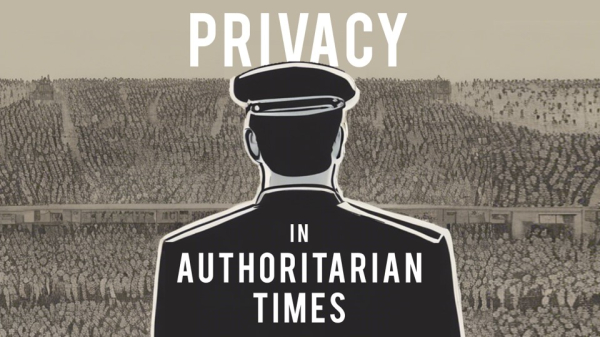
Privacy in Authoritarian Times - TeachPrivacy
I just published an op-ed in the Boston Globe entitled "States can fight authoritarianism by shoring up privacy laws." Boston Globe (Dec. 23, 2024). It'sDaniel Solove (TeachPrivacy)
From my own perspective, computing privacy is simple: if something happens entirely on my computer, then it's private, whereas if my computer sends data to the manufacturer of the computer, then it's not private, or at least not entirely private. Thus, the only way to guarantee computing privacy is to not send data off the device.
I don't understand most of the technical details of Apple's blog post. I have no way to personally evaluate the soundness of Apple's implementation of Enhanced Visual Search. One thing I do know, however, is that Apple computers are constantly full of privacy and security vulnerabilities, as proved by Apple's own security release notes. You don't even have to hypothesize lies, conspiracies, or malicious intentions on the part of Apple to be suspicious of their privacy claims. A software bug would be sufficient to make users vulnerable, and Apple can't guarantee that their software includes no bugs. (To the contrary, Apple's QA nowadays is atrocious.)
It ought to be up to the individual user to decide their own tolerance for the risk of privacy violations. In this specific case, I have no tolerance for risk, because I simply have no interest in the Enhanced Visual Search feature, even if it happened to work flawlessly. There's no benefit to outweigh the risk. By enabling the "feature" without asking, Apple disrespects users and their preferences. I never wanted my iPhone to phone home to Apple.
Remember this advertisement? "What happens on your iPhone, stays on your iPhone.""
https://lapcatsoftware.com/articles/2024/12/3.html
#Apple #ApplePhotos #Privacy #DataProtection #Encryption #iOS #iPhone
https://www.sciencedirect.com/science/article/pii/S0267364924001614
#Australia #HealthInsurance #Anonymization #Privacy #DataProtection #GDPR #Insurance
"This gives us an idea of the intensity of the monitoring and shows that smart TV platforms collect large volumes of data on users, regardless of how they consume content, whether through traditional TV viewing or devices connected via HDMI, like laptops or gaming consoles," Callejo emphasizes.
To test the ability of TVs to block ACR tracking, the research team experimented with various privacy settings on smart TVs. The results demonstrated that, while users can voluntarily block the transmission of this data to servers, the default setting is for TVs to perform ACR."
https://techxplore.com/news/2024-12-smart-tvs-viewing-external-screens.html
#TVs #SmartTVs #Surveillance #DataProtection #Privacy

Smart TVs collect viewing data even when used as external screens, according to research
A team from Universidad Carlos III de Madrid (UC3M), in collaboration with University College London (England) and the University of California, Davis (U.S.), has found that smart TVs send viewing data to their servers.Carlos III University of Madrid (Tech Xplore)
I can confidently raise this question, having observed and analyzed this area for over 15 years from various perspectives. My background includes experience in web browser security and privacy, including in standardization. I served in the W3C Technical Architecture Group, and have authored scientific papers on privacy, tracking, and fingerprinting, as well as assessments of technologies like Web APIs. This includes the Privacy Sandbox’s Protected Audience API. I was looking forward to the architectural improvements of web privacy. In other words, I am deeply familiar with this context. The media so far have done a great job bringing attention to the issue, but they frame this development as a controversy between Google’s policy change and the UK ICO’s concerns. I believe that the general public and experts alike would benefit from a broader perspective."
https://blog.lukaszolejnik.com/biggest-privacy-erosion-in-10-years-on-googles-policy-change-towards-fingerprinting/
#Google #Surveillance #AdTracking #Privacy #DataProtection
When I entered a credit card number and a random username / password into a Windows Notepad window, Recall captured it, despite the fact that I had text such as “Capital One Visa” right next to the numbers. Similarly, when I filled out a loan application PDF in Microsoft Edge, entering a social security number, name and DOB, Recall captured that. Note that all info in these screenshots is made up, but I also tested with an actual credit card number of mine and the results were the same."
#Microsoft #MicrosoftRecall #DataProtection #Privacy
https://www.tomshardware.com/software/windows/microsoft-recall-screenshots-credit-cards-and-social-security-numbers-even-with-the-sensitive-information-filter-enabled
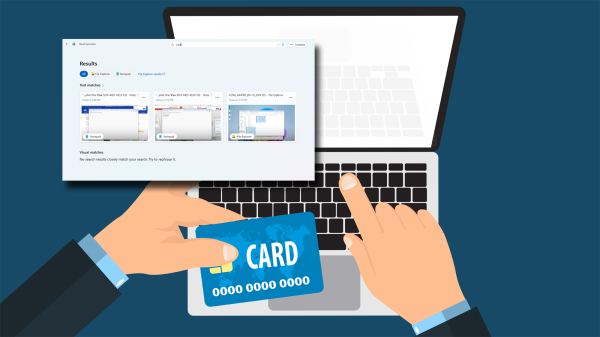
Microsoft Recall screenshots credit cards and Social Security numbers, even with the "sensitive information" filter enabled
Despite promising to filter personal data out, Recall still captures it.Avram Piltch (Tom's Hardware)
The Information Commissioner’s Office (ICO) said Google’s decision was “irresponsible” and accused the company of a U-turn, having previously prohibited the use of so-called fingerprinting technology.
Fingerprinting involves collecting pieces of information about a device’s software and hardware which can be combined to uniquely identify a device and its user – and the ICO has warned that this technology is harder to wipe than clearing cookies or site data from a web browser, meaning users could continue to be identified by advertisers."
https://www.independent.co.uk/business/ico-criticises-google-over-irresponsible-advertising-tracking-change-b2667072.html
#UK #ICO #Google #AdTracking #FingerPrinting #DataProtection #Privacy
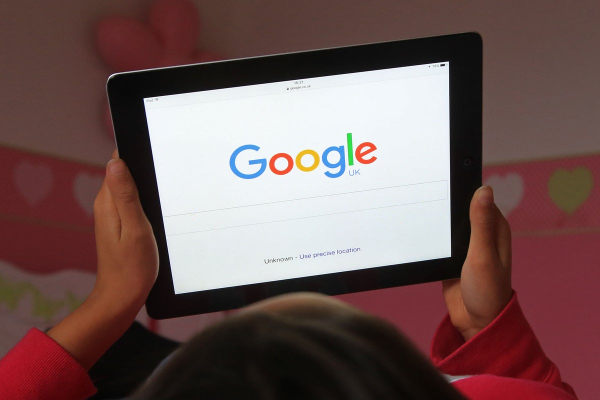
ICO criticises Google over ‘irresponsible’ advertising tracking change
The UK’s data protection regulator has criticised the tech giant over its decision to allow advertisers to ‘fingerprint’ user devices for tracking.Martyn Landi (The Independent)
#newz

This free tool offers SMBs critical insights into compromised credentials found on the dark web
Offers actionable insights to keep SMBs protectedEfosa Udinmwen (TechRadar pro)





